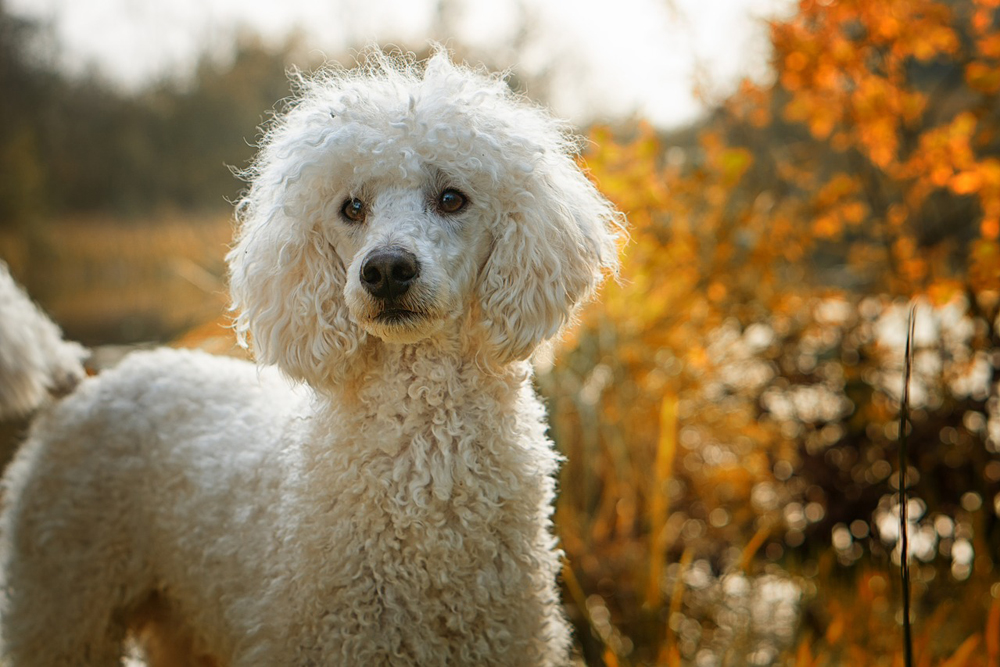Table of Contents
When considering a new dog, many people are drawn to the elegant and intelligent poodle. While these dogs are indeed popular and often seen as ideal pets, it is important to look at the breed from all angles. Here are five compelling reasons Why Poodles Are the Worst choice for some prospective dog owners.
1. High Maintenance Grooming
Poodles are known for their distinctive curly coats, which are beautiful but require extensive grooming. Unlike other breeds that shed, poodles’ hair grows continuously, which means regular haircuts are a must. Grooming a poodle is not just a matter of brushing once a week; it involves frequent trips to professional groomers, which can be expensive and time-consuming.
The unique texture of their fur can quickly become matted if not properly maintained. Mats can cause discomfort and even lead to skin infections if left untreated.
Owners must invest significant time and effort into maintaining a poodle’s coat, which involves brushing several times a week and possibly daily if the dog is very active.
This high level of grooming is essential to keep the dog comfortable and healthy, but it can be a daunting task for busy or inexperienced dog owners.
2. Prone to Health Issues

Poodles are prone to a variety of health problems that can result in hefty veterinary bills and emotional stress for the owners. Common health issues include hip dysplasia, progressive retinal atrophy (PRA), epilepsy, and Addison’s disease. Each of these conditions can significantly impact a dog’s quality of life and require long-term medical care.
- Hip Dysplasia: This genetic disorder can cause severe pain and mobility issues. Poodles of all sizes are susceptible, but Standard Poodles are particularly at risk.
- Progressive Retinal Atrophy (PRA): This eye condition can lead to blindness. Regular eye exams and genetic testing are essential for early detection and management.
- Epilepsy: Poodles can suffer from seizures, which are not only distressing for the dog but also for the owner. Managing epilepsy often involves lifelong medication.
- Addison’s Disease: A serious condition affecting the adrenal glands, which requires ongoing treatment and monitoring.
These health issues are not only a financial investment but also a considerable amount of time and emotional commitment. Owners must be prepared for the potential of ongoing medical care and the impact it may have on their lives.
3. High Energy Levels
Poodles are highly intelligent and energetic dogs that require substantial amounts of physical exercise and mental stimulation. Without adequate outlets for their energy, poodles can become bored and develop destructive behaviors such as chewing furniture, digging, and incessant barking.
- Exercise Needs: Poodles need daily walks, playtime, and activities to keep them physically fit. They excel in agility and obedience training but require a significant time investment from their owners to participate in these activities.
- Mental Stimulation: Due to their high intelligence, poodles need more than just physical exercise. They thrive on mental challenges such as puzzle toys, advanced training, and interactive games. Without these, they can become bored and frustrated, leading to behavioral problems.
For individuals or families who lead a more sedentary lifestyle or are unable to commit the necessary time to regular exercise and mental activities, a poodle may not be the best match.
4. Prone to Separation Anxiety

Poodles are known for their deep attachment to their owners. While this can be a charming trait, it also means they are particularly prone to separation anxiety. When left alone for extended periods, poodles can experience significant distress, leading to a range of problematic behaviors.
Signs of separation anxiety include:
- Excessive Barking: Poodles may bark or howl persistently when left alone, disturbing neighbors and indicating their anxiety.
- Destructive Behavior: Chewing on furniture, shoes, or other household items is common among anxious poodles left alone.
- House Soiling: Despite being house-trained, some poodles may urinate or defecate indoors when anxious.
Owners who work long hours or travel frequently may find it challenging to meet the emotional needs of a poodle. It is crucial to consider the impact of potential separation anxiety on both the dog and the household.
5. Can Be Stubborn
Despite their intelligence, poodles can be stubborn and strong-willed. This trait can make training a challenging task, especially for first-time dog owners. Poodles require consistent, patient, and positive reinforcement-based training methods.
- Training Challenges: Poodles are quick learners, but their independence can sometimes lead to resistance during training. They may test boundaries and require firm, consistent guidance to ensure they understand and follow commands.
- Behavioral Issues: Without proper training and socialization, poodles can develop behavioral issues such as aggression, excessive barking, or dominance. These issues can be difficult to manage without professional help.
Owning a poodle demands a commitment to ongoing training and behavior management. Inexperienced dog owners might struggle with the stubborn nature of poodles, leading to frustration and potential behavioral problems.
Read also: Can a Serval Cat Kill a Human, Pitbull, or Dog?
Final Words
While poodles have many admirable qualities, their high maintenance grooming, prone health issues, high energy levels, separation anxiety, and stubborn nature make them a challenging breed for many prospective dog owners. It is essential to carefully consider these factors before deciding to bring a poodle into your home.
Understanding the demands and potential downsides can help ensure a harmonious and fulfilling relationship with your pet. For those who are up to the challenge, a poodle can be a wonderful companion, but for many, these 5 reasons highlight Why Poodles Are the Worst choice.
People also ask
Why do Poodles get a bad reputation?
Poodles often get a bad reputation due to their high-maintenance grooming needs, susceptibility to health issues, high energy levels, separation anxiety, and stubborn behavior.
What are the disadvantages of Poodles?
Disadvantages of poodles include high grooming needs, health issues, high energy levels, separation anxiety, and stubbornness, making them challenging for some owners.
What is the leading cause of death in Poodles?
The leading cause of death in poodles is cancer, followed by heart disease and old age. Regular vet check-ups are crucial for early detection and management.
What is a bad Poodle behavior?
Bad poodle behaviors include excessive barking, destructive chewing, digging, and stubbornness, often due to boredom, anxiety, or lack of proper training.




